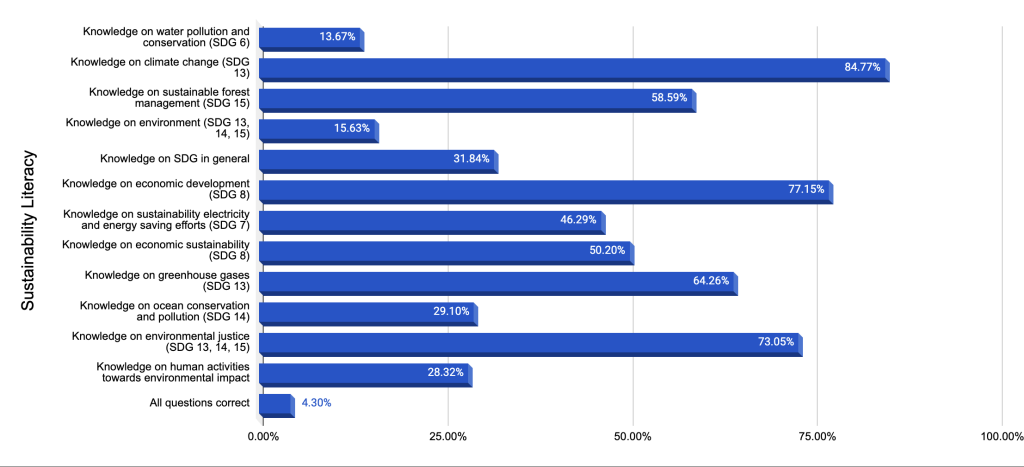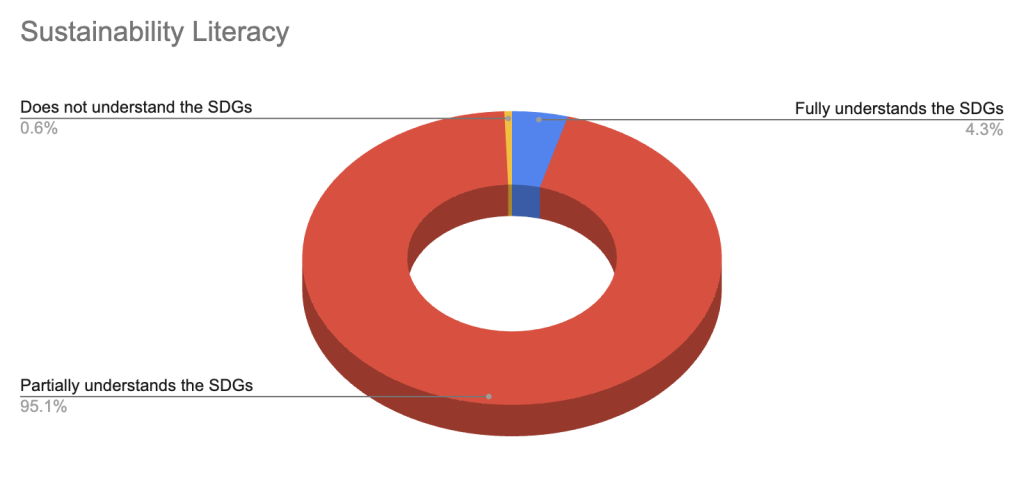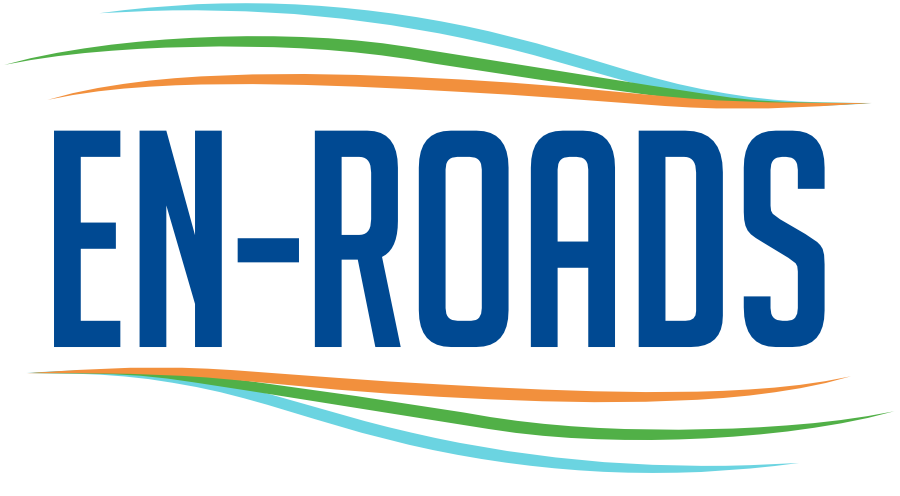
SDG 17: PARTNERSHIPS FOR THE GOALS
Universitas Pelita Harapan (UPH) supports SDG 17: Partnerships for the Goals by fostering collaboration with various stakeholders to advance sustainable development. The university actively engages with local and global partners, including governments, NGOs, and industry leaders, to address pressing issues and drive impactful solutions. UPH participates in joint research projects, community development initiatives, and international conferences, leveraging collective expertise and resources. Through these partnerships, UPH enhances its educational programs, expands its outreach efforts, and contributes to the achievement of global goals. By building strong, collaborative networks, UPH helps advance shared objectives for sustainable development and mutual progress.
Relationships to Support the Goals
Publication of SDG Reports
Education for the SDGs
Relationships with Regional NGOs and Government for SDG Policy
Universitas Pelita Harapan (UPH) is directly involved in SDG policy development through active participation in national dialogue and collaboration with government and non-government organizations. Through its Foreign Policy Community of Indonesia (FPCI) Chapter, UPH took part in the FPCI Jakarta Discussion 2.0 (June 2024), themed “Economic Diplomacy in the Era of Social Disruption and Automation Technology 4.0.” The forum brought together policymakers, diplomats, academics, and NGOs to address national challenges in sustainable economic development amid digital transformation.
UPH’s delegation contributed to identifying key issues and proposing strategies related to inclusive education and reskilling (SDG 4), innovation and sustainable economic growth (SDG 8 & 9), and multi-stakeholder partnerships (SDG 17). The recommendations emphasized balancing technological advancement with social inclusion and local welfare. Through this engagement, UPH demonstrates its role as a policy incubator, supporting evidence-based, adaptive policymaking that aligns with Indonesia’s national SDG agenda.
Read More Here: UPH Students Engagement in FPCI Jakarta Discussion 2.0 — Advancing Economic Diplomacy and Sustainable Development in the Age of Automation
Cross Sectoral Dialogue about SDGs
Universitas Pelita Harapan (UPH) actively initiates and participates in cross-sectoral dialogues on the SDGs by hosting national forums that unite government, academia, and industry. A key example is the National Seminar on Large Dams and Annual Meeting of the Indonesian National Committee on Large Dams (KNI-BB) 2023, held on 8-9 December 2023 at UPH.
The event gathered over 2,000 participants and 75 speakers, including the Minister of Public Works and Housing, to discuss sustainable dam development aligned with SDG 6 (Clean Water and Sanitation), SDG 7 (Affordable and Clean Energy), SDG 13 (Climate Action), and SDG 17 (Partnerships for the Goals). Discussions focused on climate-resilient infrastructure, renewable energy generation, and water resource governance.
Through this collaboration, UPH demonstrated its role as a neutral convening hub for policymakers, researchers, and practitioners—advancing evidence-based dialogue and collective action toward Indonesia’s sustainable development and climate resilience goals.
Read More Here: UPH as a Hub for Cross-Sectoral Dialogue on Sustainable Water Management and SDG Integration
International Collaboration Data Gathering for SDG
Universitas Pelita Harapan (UPH) actively participates in international collaboration on SDG data gathering and measurement through research led by its Faculty of Science and Technology (FaST). In January–June 2024, UPH conducted the study “Correlation Between Energy Supply, Transport, and Emission (ESTEM) in Achieving the SDGs), led by Dr. Laurence, using the En-ROADS Global Climate Simulation Model—a tool co-developed by Climate Interactive, MIT Sloan Sustainability Initiative, and partners under the UNFCCC.
By engaging with this global data network, UPH contributed to shared climate datasets and policy-impact modeling relevant to SDG 7 (Affordable and Clean Energy) and SDG 13 (Climate Action). Analyzing over 31,000 global data points, the research identified carbon pricing, methane management, and afforestation as key policy levers for climate mitigation.
This collaboration underscores UPH’s role in data-driven sustainability research, enhancing global SDG monitoring and advancing evidence-based pathways toward a sustainable, climate-resilient future.
Read More Here: UPH Advances International Climate Data Collaboration through the En-ROADS Research Initiative
Collaboration for SDG Best Practice
Universitas Pelita Harapan (UPH) advances international best practices on the SDGs through global collaboration and comparative research. In March 2024, UPH’s Faculty of Law organized the International Conference on “Regulating Technology in Asia: Prospects and Challenges” in partnership with Monash Law (Australia) and the Faculty of Law, Chiang Mai University (Thailand).
The conference examined how legal and policy frameworks can support ethical and sustainable governance of emerging technologies such as artificial intelligence, blockchain, and automation. It focused on SDG 9 (Industry, Innovation, and Infrastructure), SDG 16 (Peace, Justice, and Strong Institutions), and SDG 17 (Partnerships for the Goals).
A special session with the Economic Research Institute for ASEAN and East Asia (ERIA) enabled comparative policy analysis and dialogue on technology regulation, inclusive growth, and responsible innovation. Through this initiative, UPH strengthened regional cooperation and contributed to developing transparent and sustainable regulatory practices for future-ready governance.
Read More Here: UPH Fosters International Collaboration for SDG Best Practices through the International Conference on Regulating Technology in Asia
Collaboration with NGOs for SDGs
Universitas Pelita Harapan (UPH) collaborates with NGOs to advance the SDGs through voluntary student engagement, research, and educational initiatives. In 2024, UPH’s Service Learning Community (SLC), a fully volunteer-based student organization, partnered with WWF Indonesia to organize the Organization Visit (ORVIS) Program themed “Enriching Minds, Empowering Hearts.” The program engaged 39 students from various disciplines in experiential learning focused on sustainability, waste management, and community-based environmental action.
Participants visited WWF Indonesia’s headquarters in Jakarta to learn about initiatives such as the Plastic Smart Cities campaign, promoting collaboration between local governments, businesses, and communities to reduce plastic waste. Students also engaged in hands-on activities at Bank Sampah Induk Rumah Harum, practicing waste sorting and exploring circular economy models that enhance sustainable livelihoods.
Contributing to SDG 11, SDG 12, and SDG 13, this initiative illustrates how UPH leverages volunteer-driven student programs to integrate academic learning with practical environmental action and foster youth empowerment for sustainable development.
Read More Here: UPH–WWF Collaboration Empowers Students to Advance Environmental SDG Action through ORVIS 2024
To showcase our progress towards the Sustainable Development Goals (SDGs), we have developed a comprehensive Sustainability Report outlining our initiatives, impacts, and commitments across various areas of sustainability. View our Sustainability Report 2023/2024: Sustainability Report 2023/2024
Education for SDGs Commitment to Meaningful Education
UPH’s commitment to meaningful education is seen through its Strategic Plan 2021–2025, which serves as a guiding document regulating the planning of work programs and initiatives across the university—encompassing leaders, faculties, study programs, and supporting units. This commitment is already emphasized in the introduction of the document signed by the Rector of UPH, reflecting the leadership’s strong dedication to ensuring that meaningful education is not only a vision but also a measurable and actionable reality. Rooted in UPH’s long-term mission to provide holistic and transformational higher education, the Strategic Plan integrates true knowledge, faith in Christ, and godly character as its foundation.
To ensure that meaningful education translates into tangible outcomes, the plan outlines five strategic targets (Sasaran Strategis):
- Development of faith and character, affirming UPH’s Christ-centered educational philosophy.
- Development of education and learning, focusing on excellence in pedagogy and curriculum.
- Development of research and community service, emphasizing relevance and societal contribution.
- Development of student affairs, nurturing well-rounded, value-driven student growth.
- Development of organization, management, and resources, ensuring sustainability and institutional effectiveness.
These strategic directions are further encapsulated in four Destination Statements (2021–2025), which guide UPH’s long-term journey toward excellence:
- International Recognition, highlighting global engagement and academic reputation.
- Scale and Reach, expanding access and impact across Indonesia and beyond.
- Quality and Innovative Delivery for an Excellent, Holistic, and Transformational Student Experience, ensuring that learning remains meaningful and future-oriented.
- Sustainability, promoting responsible stewardship of resources and long-term institutional resilience.
Each destination statement is supported by detailed indicators, specific targets, and concrete work programs that directly align with UPH’s strategic goals—ensuring that meaningful education is implemented comprehensively, systematically, and measurably. Through this integrated approach, UPH continues to develop graduates who embody competence, character, and compassion, ready to serve with excellence and integrity for the glory of God (Soli Deo Gloria).
Education for SDGs: Specific Courses on Sustainability
Universitas Pelita Harapan boasts a wide range of high-quality degree programs and courses in its education catalogue. From a total of 70 study programs in 2023/2024, ranging from bachelor’s degrees to vocational studies, there are a total of 1554 courses offered in UPH’s degree programs, of which 356 (23%) are related to SDGs. A full list of the aforementioned courses, as well as a description of what goal it supports, can be found here or the button below. The courses have aspects and topics of SDGs embedded into their curriculum, which is reviewed every 4 years to maintain its relevance in the global development.
Moreover, as a more detailed explanation, the sustainability courses outlined above reflects Universitas Pelita Harapan’s intentional effort to embed sustainability principles—environmental, social, and economic—across the academic curriculum. Collectively, these courses aim to cultivate sustainability-minded graduates who understand the interdependence between people, planet, and prosperity, and are equipped to drive positive change through knowledge, ethics, and practical action.
A summary of its learning outcomes can be elaborated as the following:
1. Knowledge and Understanding (Cognitive Dimension), where students gain comprehensive knowledge of sustainability concepts and frameworks, including environmental protection, climate change mitigation, resource efficiency, and social justice.
- They learn to connect sustainability issues to the UN Sustainable Development Goals (SDGs) and to apply systems thinking in understanding complex global challenges.
- Many courses integrate interdisciplinary approaches, combining insights from science, business, education, and technology to develop holistic perspectives on sustainable solutions.
- Learners also develop an understanding of policy, governance, and ethical implications of sustainability practices in both local and global contexts.
2. Values and Attitudes (Affective Dimension), where the curriculum nurtures a deep sense of environmental ethics and stewardship, encouraging students to care for creation and act responsibly toward society and the environment.
- Students cultivate personal and collective responsibility toward sustainability, grounded in UPH’s Christian worldview emphasizing creation care, compassion, and justice.
- The learning process encourages attitude transformation—from awareness to commitment—so students see sustainability not as an academic topic but as a moral and lifestyle choice.
- It fosters a mindset of leadership for sustainability, where integrity, empathy, and collaboration are central values.
3. Action and Application (Behavioral Dimension), where students are trained to translate sustainability knowledge into real-world action through project-based learning, community engagement, and applied research.
- Courses emphasize practical sustainability skills, such as waste management, energy conservation, sustainable design, and community-based problem-solving.
- Learners are equipped to develop and implement innovative sustainability strategies that balance environmental care, social equity, and economic viability.
- The programs cultivate change agents capable of influencing institutions and communities toward more sustainable practices.
Overall, the learning outcomes from UPH’s sustainability courses emphasize sustainability literacy, ethical stewardship, and transformative action. They empower students to become leaders who think critically, act responsibly, and serve faithfully in advancing sustainability within their professions and communities. By integrating sustainability into teaching, research, and service, UPH ensures that its graduates contribute to sustainable development and climate action—a direct embodiment of the university’s commitment to meaningful, holistic, and transformational education.
Education for SDGs in the Wider Community
Universitas Pelita Harapan (UPH) demonstrates a holistic and inclusive approach to community empowerment through education, reflected in its wide-ranging outreach initiatives that engage students, alumni, and marginalized groups. Guided by its Christian mission to serve society and advance the Sustainable Development Goals (SDGs), UPH ensures that learning extends beyond the classroom to create meaningful impact for the wider community.
Through the Service Learning Community (SLC), UPH mobilizes students to lead outreach programs that directly address local needs. Structured across four departments—Health, Education and Culture, Environmental Preservation, and Research and Development—SLC initiatives embody the principles of sustainability and service. Programs such as Business Development (BISDEV) strengthen village economies through entrepreneurship training, Mari Sehat promotes health literacy and stunting prevention, Mari Membaca enhances literacy and cultural awareness among children, and the Ocean Sustainability Movement (OSMO) fosters environmental stewardship through mangrove conservation. These initiatives combine education, social innovation, and faith-based compassion, reaching hundreds of local residents each year.
UPH’s outreach extends beyond current students through active alumni engagement. The IKA UPH TALKS, organized by the Alumni Family Association (IKA UPH) and Alumni Relations, serves as a platform to reconnect graduates, share expertise, and promote the integration of sustainability principles in professional practice. Alumni are encouraged to contribute as mentors and practitioner-teachers, bridging academic learning with real-world impact. Through seminars, community service, and knowledge-sharing sessions, alumni continue to support UPH’s mission of shaping responsible leaders who uplift their communities.
UPH’s commitment to inclusive education also reaches displaced communities. In collaboration with the United Nations High Commissioner for Refugees (UNHCR), UPH provided full scholarships and comprehensive support for six Afghan refugees, who graduated in 2024 with degrees in Hospitality Management. Beyond academics, the program offered English preparation, mentorship, accommodation, and social integration—demonstrating UPH’s dedication to education as a means of restoring dignity and hope for those in vulnerable situations.
Together, these initiatives reflect UPH’s unified vision of education as a transformative force for society. By engaging students, alumni, and international partners, UPH cultivates a culture of service and sustainability—empowering individuals and communities alike to create lasting, positive change.
Sustainability Literacy
Universitas Pelita Harapan (UPH) continuously monitors and evaluates the sustainability literacy and awareness of its students as part of its institutional commitment to education for sustainable development. Each year, UPH conducts a comprehensive survey designed to assess students’ understanding of sustainability concepts and their familiarity with the United Nations Sustainable Development Goals (SDGs). The results of this annual survey serve as an internal benchmark to gauge progress and identify areas for improvement in embedding sustainability values within academic and extracurricular contexts.
Rather than conducting standalone SDG socialization programs, UPH ensures that sustainability principles are integrated across the curriculum and reinforced through various academic activities and campus events. Many student-led organizations, such as Service Learning Community (SLC) UPH, who explicitly align their work programs with specific SDGs, thus demonstrating practical engagement and student-driven application of sustainable development principles. Through these combined academic, co-curricular, and evaluative efforts, UPH effectively tracks and strengthens sustainability literacy across its student body while cultivating a culture of responsibility, innovation, and community impact.
Below is the data collected by the student survey, regarding their knowledge of the SDGs.

From the set of questions, this is the percentage of students answering correctly per indicator. Disclaimer, we did not input the entirety of the SDGs, as the survey accounts for general knowledge of the SDGs.

In conclusion from the survey, it is seen that 4.3% of students fully understand the SDGs, scoring 100% on the survey, while 95.1% still partially understand the SDGs, as they made a few mistakes.






